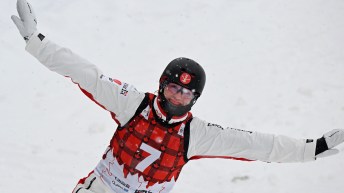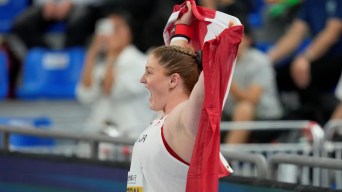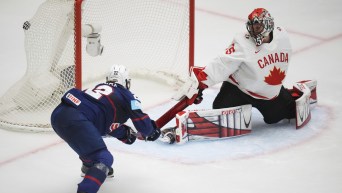Olympic gold medal ‘icing on the cake’ for magical men’s 4x100m relay team
Could a team really win the men’s 4x100m relay racing out of Lane 9? At Paris 2024, Team Canada answered with an emphatic yes.
Andre De Grasse, Aaron Brown, Brendon Rodney and Jerome Blake ran to a gold medal in Friday’s 4x100m relay final with a time of 37.50 seconds. That quartet also won silver at Tokyo 2020, while De Grasse, Brown, and Rodney won bronze at Rio 2016 with Akeem Haynes.
“It’s amazing,” said De Grasse. “We all talked about this moment. It’s a complete set: we got the bronze in Rio, Tokyo we got the silver. Now it’s like icing on the cake to get the gold medal with these guys.”
Despite their pedigree, the Canadians weren’t the favourites in this final. De Grasse had been hampered by a lingering hamstring issue, and went out in the semifinal of the 100m and 200m individual events.
Then, the relay team finished third in their qualifying heat on Thursday and with a time of 38.39 seconds were the slowest to advance. It meant a prime inside lane for the final was out of the question, but that didn’t deter the Canadians.
“Whatever [lane] we get, we can make it work,” Brown said after Thursday’s first round race. “They don’t have any rules where you can’t win out of Lane 9.”
Indeed they don’t.
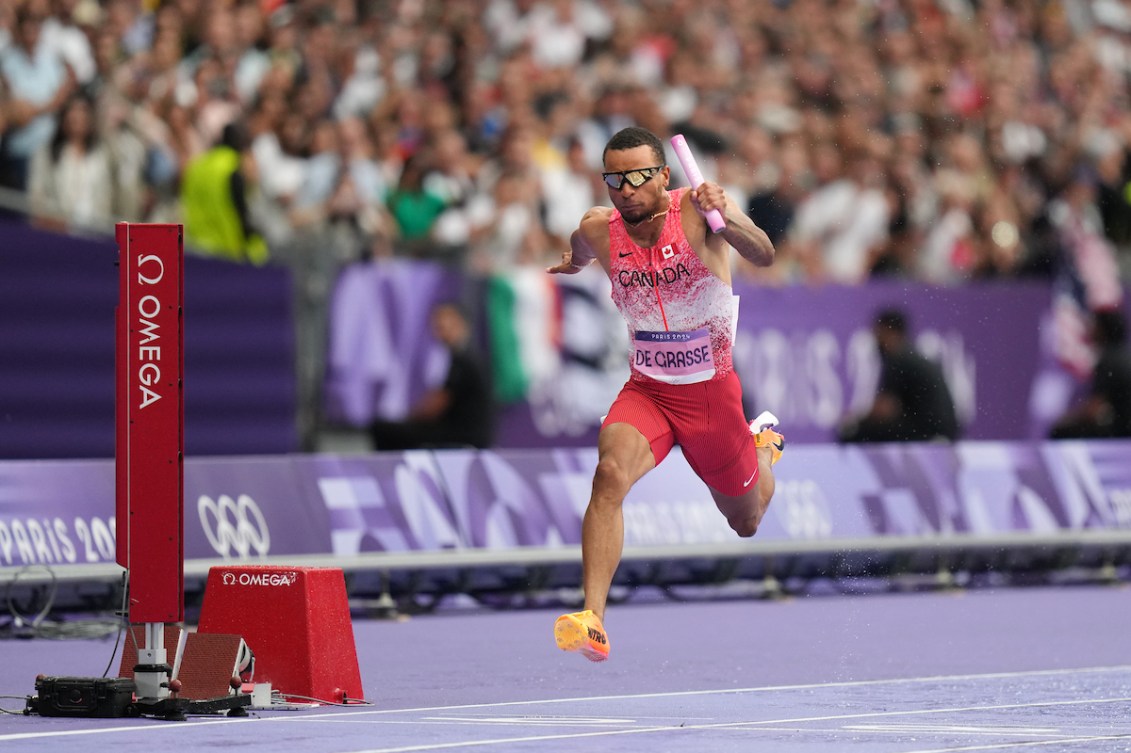
After that first round, the Canadians got together to watch race film and see where they could improve—and rallied around De Grasse, who said he wasn’t feeling great on Friday morning.
“These guys hyped me up,” said De Grasse, who did a two-hour warm-up to get his hamstring ready for the final. “One last run, the adrenaline from the crowd, just leave it all out there.
“These guys did all the work. They’ve got some incredible legs. … Aaron ran an amazing curve, Brendon does his thing as well. I just had to take it home.”
As it turned out, running out of Lane 9 may even have been somewhat advantageous.
“Lane 9 was probably the perfect lane,” said Rodney. “We’re all kind of tall, so we didn’t have to worry about anybody in Lane 9. For us, we just focus on ourselves and just get to run.”
But it’s not just about height or running abilities. De Grasse noted that clean handoffs are the key, something that the American team learned after botching their first exchange, resulting in them being disqualified.
Those all-important handoffs come down to familiarity and camaraderie, which the Canadians demonstrated to a tee.
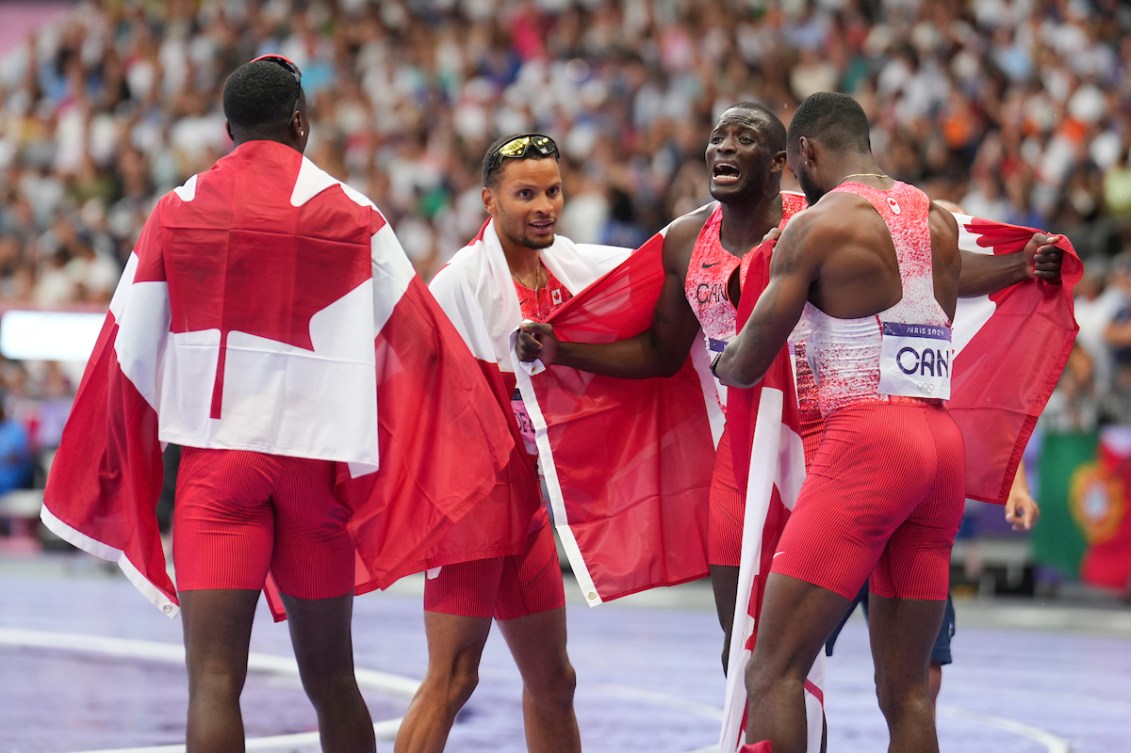
“We trust in each other and we know each other well,” said Blake. “We just know what are the cues, what are the switches we need to flip in each person.”
Making the victory extra special for De Grasse is that it was his seventh Olympic medal. That ties him with swimmer Penny Oleksiak as Canada’s most decorated Olympian of all time.
“It’s an incredible feeling and a great way to end these Games,” said the 29-year-old De Grasse.
Could it also be an end to his Olympic career, or those of his teammates? It’s far too early to speculate. But as this team proved in Paris, you can never count them out.
Said Brown: “Give us a lane, give us an opportunity, and these guys can make magic together.”


